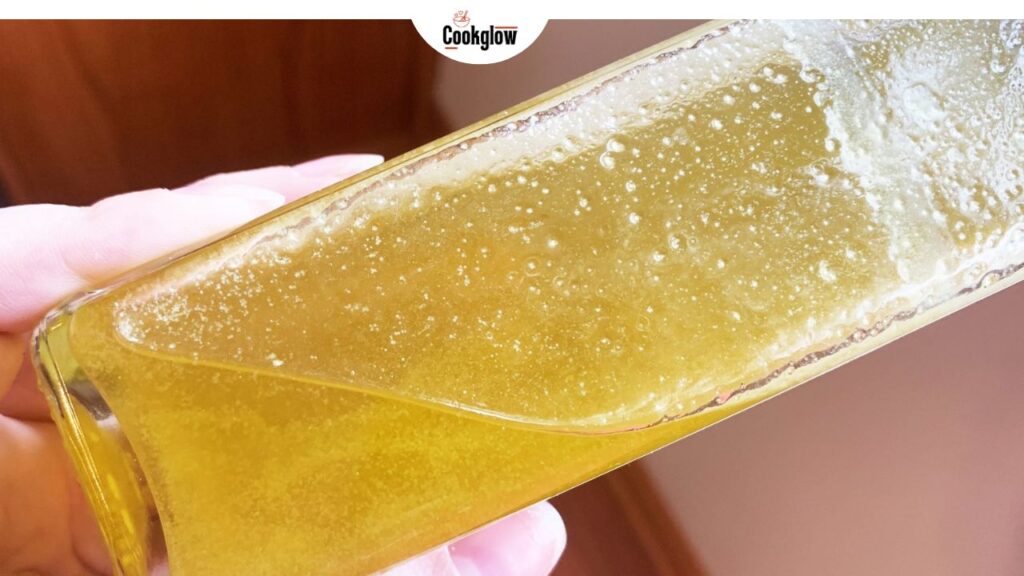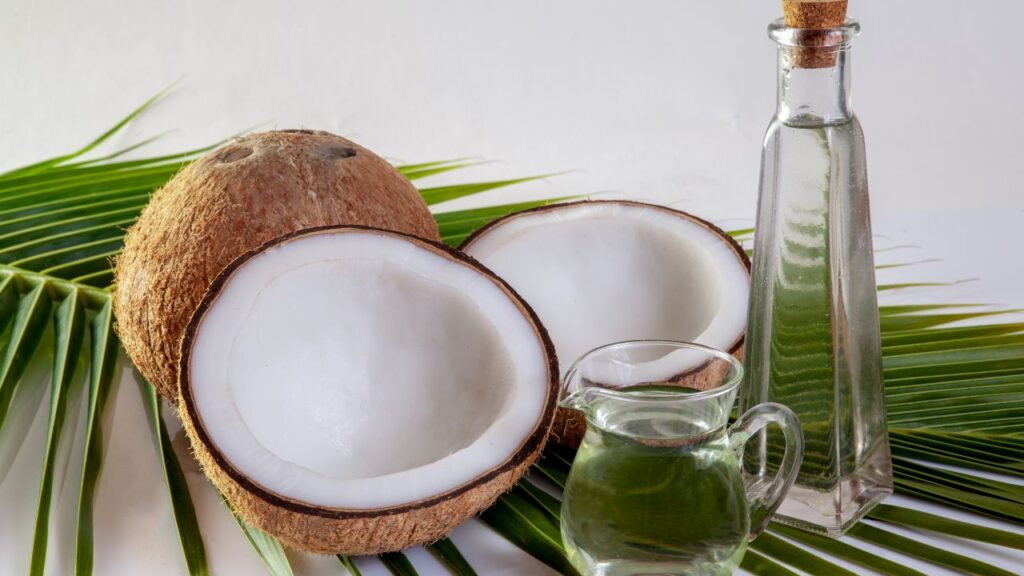
I’ll be honest—freezing cooking oil probably isn’t the first thing that comes to mind when thinking about food storage. But if you’ve ever found yourself with a large bottle of oil nearing its expiration date or simply wondered whether freezing can help preserve it, you’re not alone.
Storing cooking oil properly is crucial for maintaining its freshness, flavor, and quality. Many people refrigerate their oils to extend shelf life, but can you actually freeze them? And more importantly, should you?
Can you freeze cooking oil? By the end of this article, you’ll have a clear answer on whether freezing cooking oil is worth it, along with practical tips on storage and usage. Let’s dive in!
Contents
Can You Freeze Cooking Oil?
Yes, you can freeze cooking oil, but whether you should depends on the type of oil and how you plan to use it afterward. Unlike water, which freezes into a solid block, cooking oils have varying freezing points based on their composition. Some oils solidify in the fridge, while others take much colder temperatures to freeze completely.
Understanding Freezing Points of Different Oils
Cooking oils are made up of different types of fats—saturated, monounsaturated, and polyunsaturated fats. The more saturated fat an oil contains, the more likely it is to solidify at lower temperatures. This is why coconut oil, which is high in saturated fat, hardens at room temperature, while canola oil, which is mostly unsaturated, stays liquid even in the fridge.
Here’s a quick look at the freezing points of common cooking oils:
Freezing Points of Common Cooking Oils
| Cooking Oil | Freezing Point (°F / °C) |
| Olive Oil | 21–23°F (-6 to -5°C) |
| Coconut Oil | 76°F (24°C) (solidifies at room temp) |
| Avocado Oil | 10–14°F (-12 to -10°C) |
| Canola Oil | 14°F (-10°C) |
| Sunflower Oil | 1–5°F (-17 to -15°C) |
| Peanut Oil | 37°F (3°C) (starts to get cloudy) |
| Vegetable Oil | 14–28°F (-10 to -2°C) |

What Happens When You Freeze Cooking Oil?
Freezing cooking oil doesn’t ruin it, but it does change its texture, appearance, and, in some cases, usability. If you’ve ever left a bottle of olive oil in the fridge and noticed it turning cloudy or forming small white flakes, that’s because some of the fats are solidifying at cooler temperatures. The same thing happens when you freeze oil—just on a more extreme level.
Changes in Texture and Consistency
When cooking oil freezes, it usually doesn’t turn into a rock-solid block like water. Instead, it thickens, turns cloudy, or develops a grainy texture. Some oils, like coconut and palm oil, become completely solid, while others, like canola or sunflower oil, may remain semi-liquid even when frozen.
Here’s what you can expect:
- Cloudiness or white particles: This is normal and happens because different fatty acids freeze at different temperatures. The oil will become clear again once thawed.
- Separation: Some oils may separate after thawing, especially if they contain additives or emulsifiers. A quick stir usually restores their original consistency.
- Thicker or grainy texture: This won’t affect the oil’s usability for cooking, but it might change how it pours or spreads.
Does Freezing Affect Oil Quality or Flavor?
For the most part, freezing does not significantly affect the taste or nutritional value of cooking oil. However, repeated freezing and thawing may lead to subtle changes in flavor and texture, especially for delicate oils like extra virgin olive oil. Over time, exposure to air and moisture can also contribute to rancidity, even in frozen oil.
Will Frozen Oil Separate When Thawed?
Some oils, particularly blends or infused oils, might separate after being frozen. This doesn’t necessarily mean the oil has gone bad—it just needs a good shake or stir to bring it back together. If the oil smells rancid or has an off taste after thawing, it’s best to discard it.
In the next section, I’ll cover which oils freeze best and which ones are better stored using other methods.
Which Cooking Oils Freeze Best?
Not all oils freeze the same way. Some solidify smoothly and return to their original consistency after thawing, while others become grainy, separate, or lose their fresh taste. If you’re considering freezing cooking oil, it’s important to know which ones handle the process best.

Best Oils for Freezing
These oils freeze well and maintain their quality after thawing:
| Cooking Oil | Freezing Suitability | Notes |
| Coconut Oil | ✅ Excellent | Naturally solidifies at room temp, freezing doesn’t affect quality. |
| Olive Oil | ✅ Good | May turn cloudy but returns to normal when thawed. |
| Avocado Oil | ✅ Good | Freezes well but may thicken slightly after thawing. |
| Sunflower Oil | ✅ Good | Can be frozen with minimal texture changes. |
| Ghee / Clarified Butter | ✅ Excellent | Freezing extends shelf life without quality loss. |
Oils That Don’t Freeze Well
These oils can be frozen, but they may separate, become grainy, or develop an odd texture:
| Cooking Oil | Freezing Suitability | Notes |
| Vegetable Oil | ❌ Not Ideal | May separate after thawing, requiring mixing. |
| Canola Oil | ❌ Not Ideal | Becomes cloudy and may not fully solidify. |
| Peanut Oil | ❌ Not Recommended | High risk of separation after freezing. |
| Flaxseed Oil | ❌ Not Recommended | Delicate oil, freezing can degrade quality. |
If you’re unsure whether to freeze an oil, try a small test batch first before committing to freezing an entire bottle.
Conclusion
So, can you freeze cooking oil? Yes, but it depends on the type of oil and how you plan to use it. Some oils, like coconut and olive oil, handle freezing well, while others, like vegetable or peanut oil, may separate or lose their smooth texture.
If you decide to freeze your oil, make sure to store it in an airtight container, avoid repeated thawing and refreezing, and use it within a reasonable time frame. For everyday use, refrigeration or a cool, dark pantry may be a better option.
Now that you know how freezing affects different cooking oils, do you think it’s the right storage method for you? Let me know your thoughts, and if you’ve tried freezing oil before, share your experience!
FAQs About Freezing Cooking Oil
1. Can you freeze used cooking oil?
Yes, but it’s not the best idea. Used cooking oil contains food particles and moisture, which can degrade its quality over time. Freezing won’t remove any impurities, and thawed oil may have an altered taste or texture. If you must store used oil, strain it well and refrigerate it instead.
2. Does freezing oil extend its shelf life?
Freezing can slow down the oxidation process, which helps preserve oil longer. However, most cooking oils already have a long shelf life when stored in a cool, dark place. Freezing isn’t necessary unless you’re dealing with a large quantity that you won’t use soon.
3. Will frozen oil taste different after thawing?
For most oils, freezing doesn’t significantly change the taste. However, delicate oils like extra virgin olive oil or flaxseed oil may develop slight flavor changes due to temperature fluctuations. It’s best to freeze oils in small portions to minimize exposure to air and moisture.
4. How should I thaw frozen cooking oil?
The best way to thaw frozen oil is to leave it at room temperature until it returns to liquid form. Avoid microwaving or heating it too quickly, as this can degrade its quality. If needed, place the container in warm (not hot) water for a gentle thaw.
5. Can I cook with frozen oil directly?
It depends on the oil’s consistency. If the oil has only thickened or turned cloudy, you can use it straight from the freezer. If it’s fully solidified, you’ll need to thaw it slightly before pouring.
6. What’s the best way to store cooking oil for freshness?
If freezing isn’t your preferred method, store oil in a cool, dark place away from heat and light. For oils with a shorter shelf life (like flaxseed or walnut oil), refrigeration is a better alternative than freezing.

